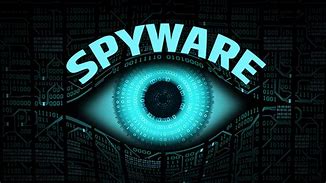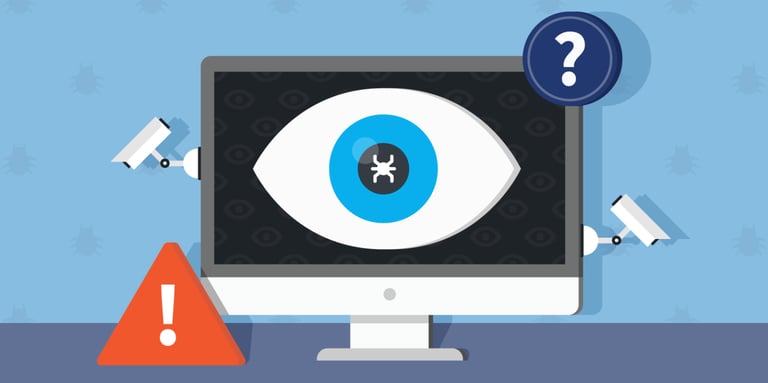Understanding Spyware: The Invisible Threat to Your Privacy
BLOGS


The term "spyware" is often thrown around, but what exactly does it mean? Spyware is any software that monitors your activity on a computer, often without your knowledge. This can range from taking screenshots of what you're doing, logging your keystrokes, or even something as simple as tracking your browsing habits through cookies.
What is Spyware?
At its core, spyware is designed to watch and record what you do on your computer. It can be as malicious as software that logs every key you press—like your passwords—or as seemingly harmless as a cookie, which is a small text file that records information about your visit to a website.
For example, when you visit a website like Amazon.com, the site remembers what you were last searching for thanks to cookies. These cookies don’t typically store personal data directly; instead, they use an identifier that the website matches with data stored on its servers. However, since cookies can track your browsing behavior, they could technically be considered spyware, depending on how they are used.


The Prevalence of Spyware
It’s been claimed that up to 80% of all computers connected to the internet have some form of spyware. While this number is difficult to verify, it highlights how widespread spyware is. What might surprise you is that spyware itself can be perfectly legal when used correctly.
There are two main legal scenarios where monitoring someone’s computer activity is allowed:
Parental Monitoring: Parents have the right to monitor their minor children’s online activity. Many experts even argue that not monitoring a young child on the internet could be considered neglectful.
Workplace Monitoring: Employers are legally permitted to monitor their employees’ computer and internet usage, as long as it’s done on company-owned equipment.
Because of these legal uses, many spyware products are available for purchase. Here are a few examples:
Teen Safe: A tool for parents to monitor their children’s online activities. Visit Teen Safe
Web Watcher: Another popular monitoring tool. Visit Web Watcher
ICU Child Monitoring Software: Software designed to monitor children's computer usage. Visit ICU Software
WorkTime: A tool for employers to monitor employees’ activities. Visit WorkTime


How Spyware is Installed
While some spyware is installed legally, there are cases where it’s used maliciously. The biggest challenge for criminals is figuring out how to get the spyware onto the target system. There are several common methods:
Trojan Horses: The victim is tricked into downloading the spyware, believing it’s something harmless.
Virus Distribution: Spyware can be spread like a virus, infecting multiple machines.
Manual Installation: In some cases, spyware is installed manually, either by law enforcement with a warrant or by someone with physical access to the target machine.
A common trick involves sending an email with an attachment that, once opened, installs the spyware on the victim’s computer. You’ve probably seen such emails in your inbox, promising something enticing if you just click on the attachment.
Conclusion
Spyware is a broad term that covers everything from harmless cookies to malicious software that invades your privacy. Whether it’s being used legally to monitor children or employees, or illegally to steal personal information, spyware is a significant concern in the digital age. Understanding how it works and how it’s installed can help you protect your privacy and stay safe online.


